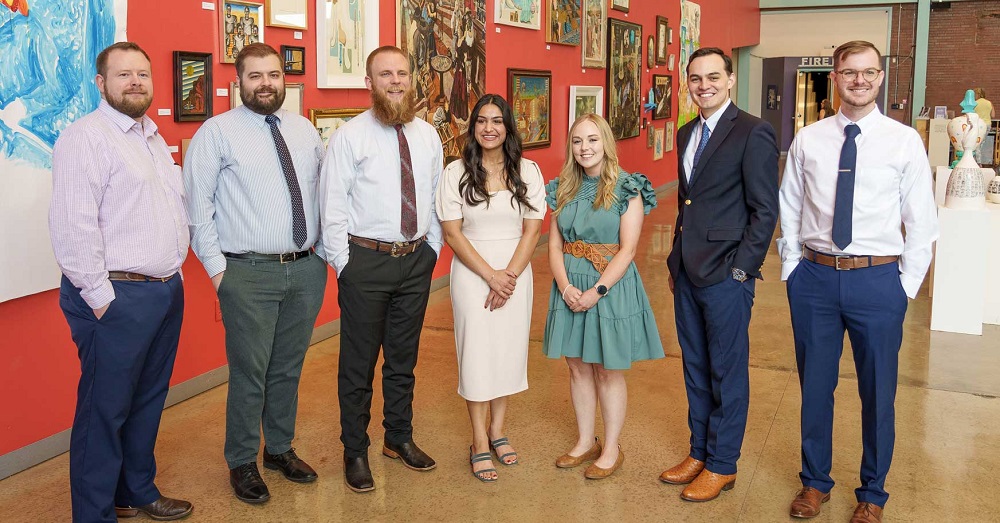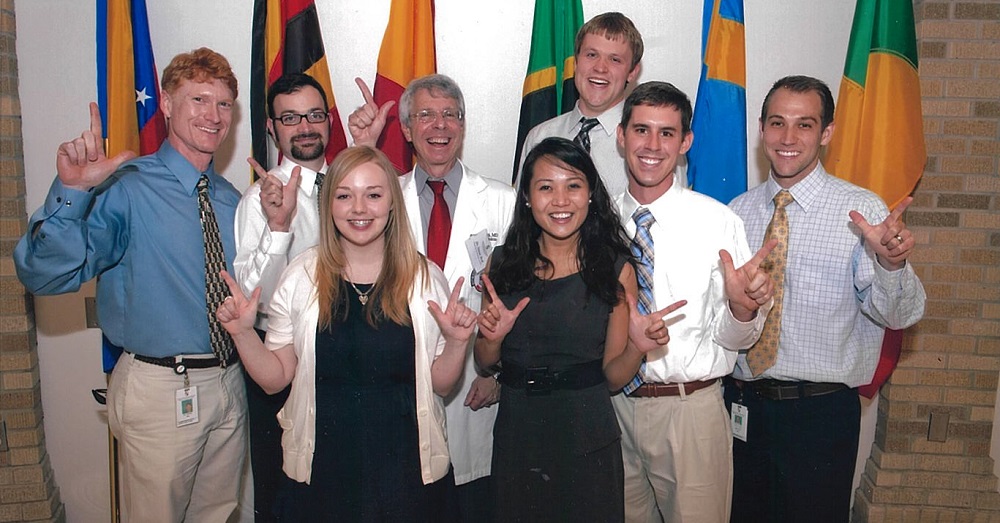Lubbock Home to One of the Best Medical Schools in Primary Care in the Nation

Texas Tech University Health Sciences (TTUHSC) Center School of Medicine received top rankings from the American Academy of Family Physicians and U.S. News & World Reports. The ratings confirm and validate the School of Medicine’s commitment to address the shortage of primary care physicians in the U.S. with the Family Medicine Accelerated Track (FMAT) program approved by the nationally recognized accrediting authority for medical education in 2010.
The FMAT program has allowed TTUHSC primary care students to complete their degree in three years at half of the cost of the standard four-year program. This year marks 10 years since the first FMAT class graduated.
“Our School of Medicine made a commitment to take steps in changing how medical schools attract and educate future family medicine doctors,” Steven L. Berk, M.D., TTUHSC executive vice president and dean of the School of Medicine said. “We are now one of the top medical schools in the country for producing family medicine physicians.”

For having achieved the greatest percentage of graduates going into family medicine residences, based on a three-year average, the American Academy of Family Physicians ranked the TTUHSC School of Medicine ninth and stated, “These schools are helping grow the primary care workforce and meet the health care needs of the country.”
The U.S. News & World Report also named the TTUHSC School of Medicine as one of the top primary care medical schools in the country (ranked 19 in the U.S.). Of the top 20, the school was also ranked third as one of the most affordable primary care programs.
Of the total School of Medicine FMAT graduates who have also completed residency and entered practice, 70% went on to work in underserved communities and half of the graduates stayed in Texas for their first job.
“With the FMAT program, we definitely were the pioneer in this idea that has made a big difference in producing more family medicine physicians,” Berk said. “The need for primary care physicians and the projected shortage has actually gone up. Even though there are now more medical schools, most medical schools have only 10 or 11% of their students that go into family medicine.”

The original FMAT cohort graduated in 2013
One of the graduates of the first FMAT cohort is not only still practicing family medicine, she also is a champion of the program in her role as clerkship director for medical students’ second year clinical experience.
“I was part of the first class and I was a champion for it then,” Keeley Hobart, M.D., TTUHSC associate professor said. “Now I’ve come full circle as one of the teachers for FMAT. It’s so fun to see the students where I was at one point and being able to reassure them that they are choosing an amazing career. FMAT is a wonderful way to get there because they get to interact with patients sooner. For me, it’s really exciting to be a part of it. Even now after all this time.”
Hobart is originally from the West Texas region but grew up in South Dakota. She moved back to Texas, having envisioned attending Texas Tech University and then TTUHSC.
“My mom was pretty ill throughout my childhood and she struggled,” Hobart said. “It was really the primary [care] doctor that led her and our family through everything. That was kind of my inspiration because it was family doctors taking care of us. Family medicine was all I ever knew. To me, that was what being a doctor was and that was how you help people. So, for me, it was the only option I wanted to do.”

Hobart added that getting through medical school in three years instead of four, with half of the debt, seemed like a “no brainer.”
“Those were my two big main motivators,” Hobart said. “That and I love education. Getting to be a part of such an innovative educational opportunity was inspiring and interesting to me.”
When it comes to needing primary care physicians, the greatest need is in rural areas. Although Hobart isn’t practicing in what is considered a rural area, Berk said there is also a need in urban and suburban areas.
According to AAMC’s State Physician Workforce Data Report, Texas ranks 47th in the nation in active primary care physicians per 100,000 population. A survey commissioned by the North Texas Regional Extension Center found that 35 Texas counties are without any physician of any kind and 80 Texas counties have five or fewer physicians.
The Consortium of Accelerated Medical Pathway Programs (CAMPP) reported there are 10 other medical schools that offer an accelerated program focused on family medicine. More than 35 medical schools have accelerated programs which are more broadly focused on primary care or other specialties. Betsy Goebel Jones, Ed.D., TTUHSC School of Medicine FMAT co-director and Board of Directors member of the Consortium of Accelerated Medical Pathway Programs, said TTUHSC certainly helped pave the way for the growth of accelerated programs.
“We have had a fulfilling opportunity to mentor other schools interested in an accelerated pathway curriculum similar to FMAT, as well as to collaborate with CAMPP schools on issues common to all of our programs, including readiness for residency, student wellness and debt reduction.”
